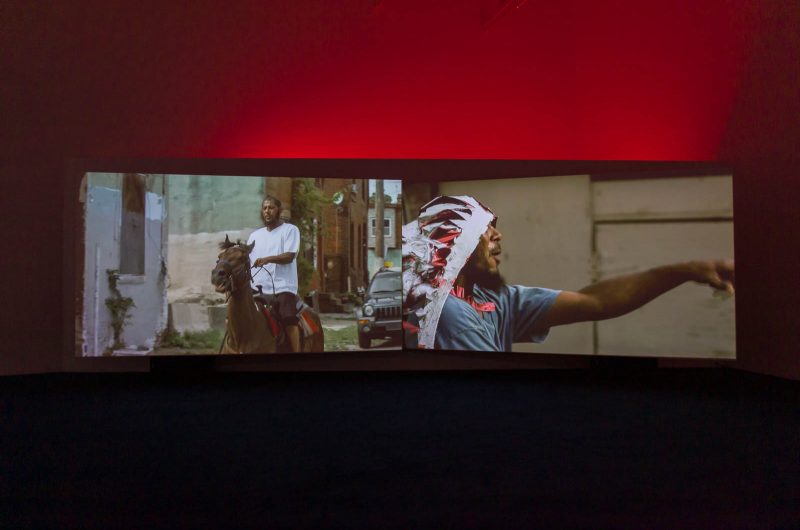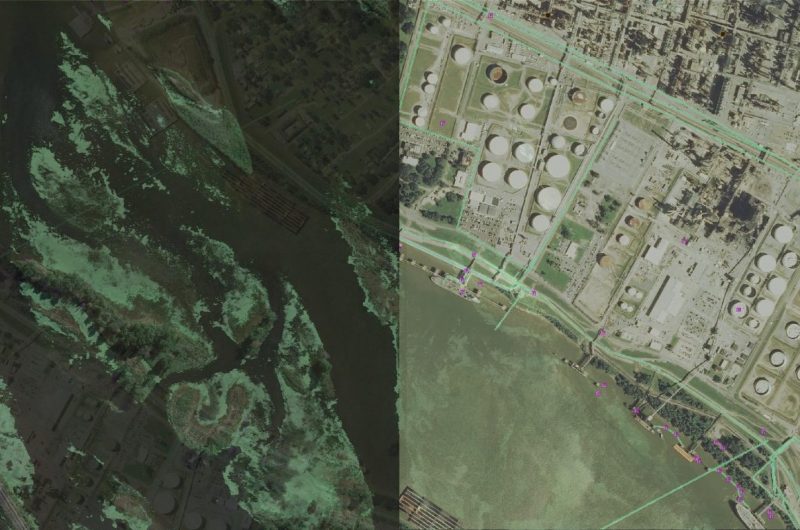TALK: Black Ecologies – Imani Jacqueline Brown
How do we rupture the continuum of Extractivism,
which spans from colonial genocide and slavery
to climate change?We get radical. [1] We get to the root.
Africa is humanity’s root.
Through her Black diaspora,
she seeds resistance to extractive ecologies
of plantations and penitentiariesAnd opens portals to ecological reparations.
1. Radical / rad-i-kuhl / adj. Of or going to the root or origin.
Invited in response to Mohamed Bourouissa’s work ‘Brutal Family Roots’, Imani Jacqueline Brown shares Black Ecologies, a body of work on ecological reparations that branches into an ongoing investigation with Forensic Architecture.
In the US state of Louisiana, one can follow the flow of oil and gas from wetland wells through thousands of miles of pipeline and arrive at petrochemical plants occupying the footprints of fallow sugarcane plantations. Here, unmarked burial grounds of enslaved people are disarticulated by waste retention ponds and borrow pits. But sometimes they remain: as islands of trees in seas of cane. These trees are descendants of wild magnolias planted by the enslaved, who were denied headstones, to mark the graves of loved ones. Trees hold bodies of land and people together against the tide of destruction and desecration. These Black ecologies root us to memories of a future of ecological integration.
BIOGRAPHY
Imani Jacqueline Brown is an artist, activist, researcher, and writer from New Orleans. Her work investigates the continuum of Extractivism, which spans from colonial genocide and slavery to Cancer Alley, coastal erosion, and climate change. In exposing the layers of violence and resistance that structure US society, Imani frees up space to imagine a path to ecological reparations. Among other things, Imani is currently the guest editor of Black Ecologies, the second issue of MARCH: a journal of art & strategy, and a researcher with Forensic Architecture.
How do we rupture the continuum of Extractivism,
which spans from colonial genocide and slavery
to climate change?We get radical. [1] We get to the root.
Africa is humanity’s root.
Through her Black diaspora,
she seeds resistance to extractive ecologies
of plantations and penitentiariesAnd opens portals to ecological reparations.
1. Radical / rad-i-kuhl / adj. Of or going to the root or origin.
Invited in response to Mohamed Bourouissa’s work ‘Brutal Family Roots’, Imani Jacqueline Brown shares Black Ecologies, a body of work on ecological reparations that branches into an ongoing investigation with Forensic Architecture.
In the US state of Louisiana, one can follow the flow of oil and gas from wetland wells through thousands of miles of pipeline and arrive at petrochemical plants occupying the footprints of fallow sugarcane plantations. Here, unmarked burial grounds of enslaved people are disarticulated by waste retention ponds and borrow pits. But sometimes they remain: as islands of trees in seas of cane. These trees are descendants of wild magnolias planted by the enslaved, who were denied headstones, to mark the graves of loved ones. Trees hold bodies of land and people together against the tide of destruction and desecration. These Black ecologies root us to memories of a future of ecological integration.
BIOGRAPHY
Imani Jacqueline Brown is an artist, activist, researcher, and writer from New Orleans. Her work investigates the continuum of Extractivism, which spans from colonial genocide and slavery to Cancer Alley, coastal erosion, and climate change. In exposing the layers of violence and resistance that structure US society, Imani frees up space to imagine a path to ecological reparations. Among other things, Imani is currently the guest editor of Black Ecologies, the second issue of MARCH: a journal of art & strategy, and a researcher with Forensic Architecture.
Read Less...

